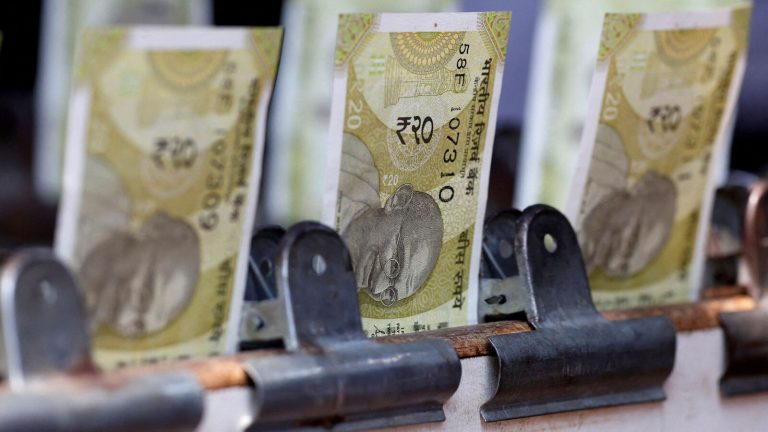Banks have various eligibility criteria for loans. If a loan applicant doesn’t meet one of the eligibility criteria, the bank may ask the applicant to get a co-applicant instead of rejecting the loan application.
In this article, we will understand why a borrower may get a co-applicant and the impact of a joint loan on the credit score and profile of joint applicants.
Need for a joint loan
Some reasons why a borrower may need to bring in a co-applicant include the following.
Low credit score: Banks usually consider a credit score of 750 or above good for approving loan applications, provided the other eligibility criteria are met. Some banks consider loan applications with a credit score lower than 750.
If a borrower’s credit score is lower than the minimum credit score specified by the bank, the borrower may be asked to bring in a co-applicant. In such a scenario, the borrower must get a co-applicant with a good credit score. The higher the credit score of the co-applicant, the better. A co-applicant with a good credit score increases the probability of the joint loan getting approved.
High DTI ratio: The debt-to-income (DTI) ratio measures the percentage of the monthly income used to service debt obligations. These can include repaying loan EMIs, paying credit card monthly bills, etc. Banks consider a DTI ratio of 35% or lower good for approving loan applications, provided the other eligibility criteria are fulfilled.
Banks consider a DTI ratio of 36% to 50% on a case-to-case basis for approving loan applications. The higher the DTI ratio, the lower the probability of the loan getting approved. If the borrower’s DTI ratio is higher than the maximum specified by the bank, the borrower may be asked to bring in a co-applicant. In such a scenario, the borrower must get a co-applicant with a lower DTI ratio.
Low income: Banks specify a minimum monthly income required for approving loan applications. If the borrower’s monthly income is slightly lower than required and other eligibility criteria are met, the borrower may be asked to get a co-applicant. In such a scenario, the borrower must get a co-applicant with a decent monthly income.
In a joint loan, the bank relies on the co-applicant to repay the loan in case the primary borrower is unable to do it. A joint loan application can be made with the spouse, children, parents, siblings, or anyone else the bank allows.
Joint loan application processing
While processing a joint loan application, the bank will do a hard enquiry on the credit profile of both applicants. The credit score and profile of both joint applicants will be reviewed. The bank will check if either applicant has delayed, settled, defaulted, etc. on any loan repayments.
Once the bank is satisfied with the credit scores and profiles of both applicants and other eligibility criteria, the loan application will be approved.
How does joint loan repayment impact the credit profile of both borrowers?
A joint loan repayment can be a boon or a bane for both borrowers. The entire loan repayment track record will be reflected in the credit profile of both borrowers.
How can both co-applicants benefit from timely payments: The timely repayment of loan EMIs will benefit both co-applicants. The repayment of each EMI will be reflected in the credit profile of both applicants. Thus, it will contribute towards improving the credit score of both applicants.
Were you asked to bring in a co-applicant as your credit score was lower than the minimum specified by the bank? If yes, a joint loan is a good opportunity for you to make timely EMI payments and build a good credit score over a period of time. In future, this good credit score will help you get loans on your own individually without the need for a co-applicant.
How will an EMI delay or default impact both co-applicants: While timely EMI payments can help both co-applicants build their credit score, the opposite can also be true. If the primary borrower delays or defaults on the EMI payment, it is the responsibility of the co-applicant to pay. In such a scenario, the co-applicant has a legal obligation to pay. If they don’t, the bank can initiate legal proceedings for loan recovery against both co-applicants.
The bank will report any delays or defaults in EMI payment to the credit information company (CIC) for both borrowers. The delay or default will be reflected in the credit profiles of both co-applicants. As a result, the credit scores of both borrowers will fall sharply.
If an EMI payment is delayed for over 90 days, it will be classified as a non-performing asset (NPA). Any loan default or settlement will be reflected in the credit profiles of both co-applicants. The default or settlement status can reflect in the credit profile for up to seven years, unless the borrower takes corrective action. The default or settlement status will make it challenging for both co-applicants to get new loans or credit cards in future.
Should you be a co-applicant in a joint loan?
A family member or others may approach you to become a co-applicant in their loan application. By being a co-applicant in a joint loan, you can help the primary applicant to get the loan. However, it will be your responsibility to ensure the primary borrower makes timely payments. If that happens, as a co-applicant, your credit score and profile will also benefit along with the primary borrower’s.
However, if the primary borrower delays or defaults on EMI payment(s), the bank will ask you to pay up. Also, the delay or default will negatively impact your credit score and profile. Hence, as a co-applicant, you will have to ensure the primary borrower pays all EMIs on time till the loan is repaid fully.
Gopal Gidwani is a freelance personal finance content writer with 15+ years of experience. He can be reached at LinkedIn.


